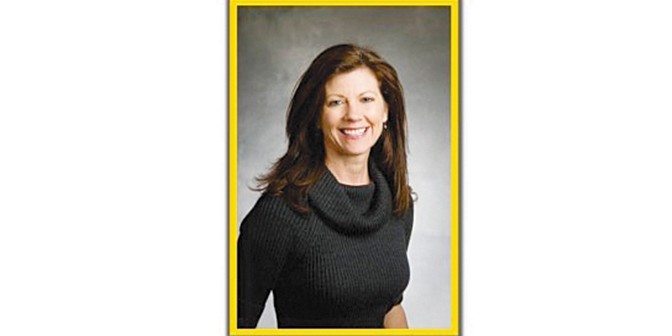(Photo above Teresa Payne)
Homeowner associations (HOAs) are non-profit corporations where ALL owners are members. One of the biggest advantages of living in an HOA is the ability of the association to preserve, protect and enhance property values.
The secret to a successful HOA is that each member acknowledges their role in the community and at times be willing to take on some added responsibility.
Recently I helped a client community transition from self-management to professional management. Kudos to them! Even the smallest HOAs can be a challenge to self-manage. When my associate and I attended our first board meeting for this community, a man asked us, “Did the board hire you because they’re incompetent?”…unfortunately at the time I didn’t think to say,
“No – Your board hired us because they ARE competent.”
This experience led me to think about a greater concern in our society of HOAs: RESPONSIBILITY. Who is responsible for maintenance of our homes? Our landscape? Who is responsible for our behavior? What does your neighbor think of your behavior and what do you think of theirs?
HOA boards and managers have to handle a surprisingly wide variety of situations. We regularly deal with owners who have a bone to pick about a neighbor’s behavior. Sometimes, two neighbors just don’t like each other and will always find something to report to the manager or board.
My neighbor parks his car in front of my house so now it’s what I see when I look out my window.
Can you make kids stop running across my front lawn.
The street light shines in my bedroom and I can’t sleep, so please fix it NOW.
There’s a dog chasing a deer, you need to do something.
My neighbor’s tree roots are growing over into my property.
My girlfriend is allergic to bees. Please remove all the flowers so she doesn’t get stung.
Associations aren’t always responsible for solving problems. If an owner’s behavior doesn’t violate the governing documents, then the board generally has no business butting in. Whatever the complaint, the first question we ask is – have you talked to your neighbor?
A lady from that same community walked into our office and said, “I’m here to work in my office.” She brought in her work and sat down at our conference table and said, “You changed our HOA address and therefore this is MY office.”
Well, technically the address was changed to a PO Box, so go right ahead and set up shop down there!
Despite the horror stories and critics, it’s obvious many people appreciate the way HOAs operate. Why else would 20 percent of the population voluntarily place themselves under their control?
When you purchase a home in an HOA you automatically become a member of the association and are bound to deed restrictions, covenants and conditions (CC&Rs). These rules and restrictions are to protect the community and to maintain or improve property values.
Lastly, I leave you with some thoughts on How to Create a Strong Community:
You all must obey your governing documents; you agreed to do that when you closed escrow. By obeying community rules and regulations, you contribute to your community and accept the role of a rule abiding member. Each year you conduct an annual meeting at which time you elect your board of directors. Although you don’t have to participate in the election process, choosing to do so contributes to the success of your community.
Your role as a rule abiding member expands to include that of a voting member. You also have the opportunity to attend your board of directors meetings in order to better understand the business decisions made by the board. When you choose to attend those meetings, your role as a rule abiding, voting member now expands to include that of a participating member. And when you choose to serve on community committees or the board of directors, you accept another role and become a rule abiding, voting, participating and contributing member.
Volunteering for your HOA Board and living in an HOA should be a rewarding experience and we urge every board – no matter how small – to have a relationship of some sort with a professional manager.
Fieldstone Management strives to find the most effective solutions to the challenges faced by community associations. We hope that in your process of promoting peace and aesthetics in your community, your property values are protected.
Teresa Payne, CMCA, AMS is the owner and general manager of Fieldstone Management, LLC located at 371 SW Upper Terrace Drive, suite 2, Bend, OR. 541-385-7799
Fieldstone Management is a bonded, licensed property management company specializing in the management of community associations. We offer full service association management, consulting, and education for communities. Fieldstone is a member of CAI (Community Associations Institute).




